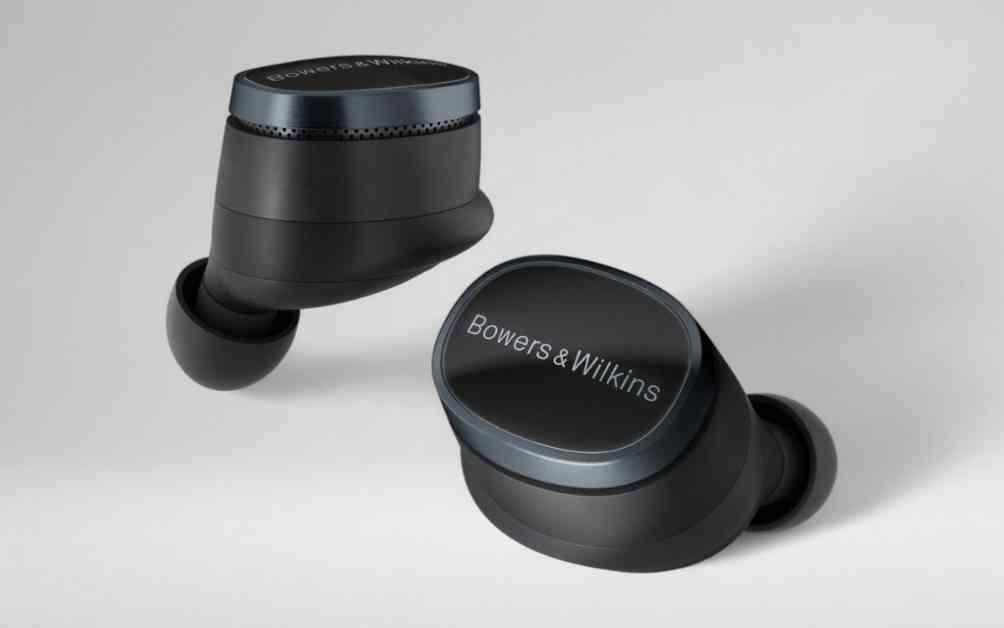Bowers and Wilkins Pi8: A Competitor to Apple Airpods 4
In the world of wireless earbuds, the competition is fierce. With Apple’s Airpods 4 leading the pack, the Bowers and Wilkins Pi8 are setting out to make a name for themselves in the high-end audio market. After putting the Pi8 to the test, we can confidently say that these earbuds are a force to be reckoned with.
Sound Quality: A True Delight
One of the standout features of the Bowers and Wilkins Pi8 is its exceptional sound quality. The 12mm carbon cones offer improved fidelity, delivering a truly immersive listening experience. Whether you’re a fan of classical music, drum & bass, or heavy rock, the Pi8s can handle it all with clarity and precision. Voices sound incredibly real, making you feel like you’re right there in the room with the artist. Even during calls, the Pi8s’ redesigned microphones ensure crystal-clear audio, even in challenging conditions like rain and wind.
Design and Comfort: A Premium Feel
The design of the Bowers and Wilkins Pi8 is a significant improvement over its predecessors. With a more ergonomic fit that doesn’t require awkward rotations in the ear, these earbuds are comfortable to wear for extended periods. The touch controls on the earbuds have been upgraded for more intuitive use, and the premium materials used in both the buds and the case exude quality. Despite being slightly bulkier than some other earbuds on the market, the Pi8s stay securely in place, even during vigorous activities like jogging.
Noise Cancellation and EQ: Room for Improvement
While the noise cancellation on the Pi8s is effective in reducing everyday ambient sounds like bus and train rumbles, it falls short of the industry-leading performance of brands like Bose. That being said, the pass-through mode works well, and the five-band EQ adjuster in the app allows for personalized sound adjustments. Additionally, the True Sound feature ensures that your music is delivered with the highest fidelity possible, without any unwanted enhancements.
Battery Life and Recharging: Convenient and Reliable
The Pi8s offer a standard battery life for wireless earbuds in this category. With six and a half hours of playback time with noise cancellation activated, and an additional two full charges in the case, you can enjoy up to 20 hours of music on the go. The wireless charging capability of the case adds convenience, eliminating the need for cumbersome cables and allowing for hassle-free recharging on any standard wireless charging pad.
Connectivity: Innovative Features
One of the standout features of the Bowers and Wilkins Pi8 is its innovative connectivity options. The charging case can be used as a retransmitter, allowing you to stream high-quality audio from your phone to other devices. This feature is particularly useful for travelers looking to enhance their in-flight entertainment experience. Additionally, with support for aptX Lossless for Android users and the ability to transmit lossless 24bit 96Khz audio to compatible devices, the Pi8s cater to audiophiles seeking uncompromised sound quality.
Overall Verdict: A Premium Listening Experience
Despite being on the pricier side, the Bowers and Wilkins Pi8 earbuds deliver a premium listening experience that justifies the cost for discerning music enthusiasts. The exceptional sound quality, comfortable design, and innovative features set them apart from the competition. While the noise cancellation may not be industry-leading, the overall package of the Pi8s makes them a worthy contender in the wireless earbud market.
In Conclusion
The Bowers and Wilkins Pi8 earbuds offer a combination of superior sound quality, premium design, and innovative features that set them apart from the competition. While they come at a higher price point than some of their rivals, the exceptional listening experience they provide makes them a worthwhile investment for audiophiles and music lovers alike. If you’re looking for wireless earbuds that deliver top-notch audio performance and cutting-edge technology, the Pi8s are definitely worth considering.












